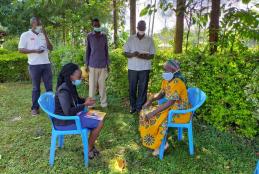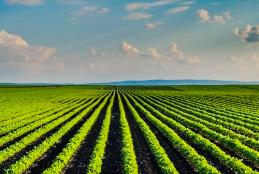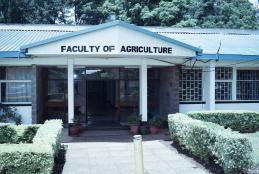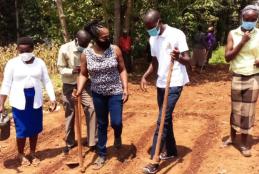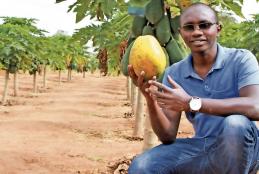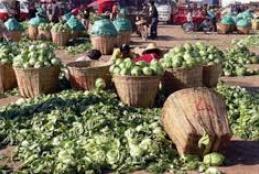CMAAE Student in Field Survey at Kapkerer, Nandi County
Susan Oburu is a postgraduate student in Collaborative Masters in Agricultural and Applied Economics(CMAAE) in the department of Agricultural Economics.She went for a field survey in Kapkerer, Nandi County on September 3rd, 2020;she was accompanied by Dr. David Jakinda Otieno and Dr. Evans Ligare Chimoita who are lecturers from the department of Agricultural Economics.A local field guide introduced the team to the farmers as they can gain valuable information the agricultural extension services.

